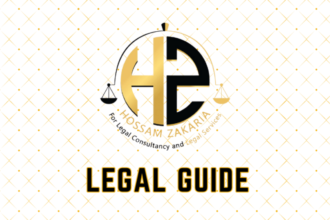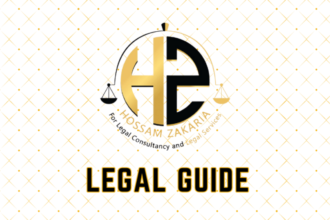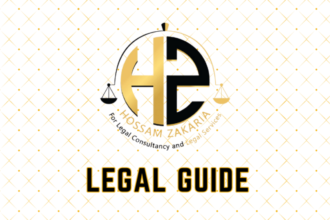Egypt
Introduction
The legal system of Egypt is one of the oldest in the world, with its roots stretching back to the ancient Egyptian civilization. Modern Egyptian law is a complex tapestry woven from a variety of sources, including Islamic law (Sharia), Napoleonic codes, and elements of British common law. This comprehensive guide delves into the key areas of law in Egypt, including constitutional law, criminal law, civil law, administrative law, family law, labor and employment law, intellectual property law, and environmental law.
Constitutional Law
1.1 The Constitution of Egypt
The Constitution of Egypt serves as the supreme law of the land, providing the framework for the governance and legal system. The current constitution, ratified in 2014, outlines the structure of the state, the separation of powers, and the fundamental rights and freedoms of citizens.
1.2 Fundamental Rights and Freedoms
The Constitution guarantees a range of fundamental rights and freedoms, including:
- Freedom of expression, assembly, and association.
- Right to life, liberty, and security of the person.
- Equality before the law and protection against discrimination.
- Right to a fair trial and legal representation.
1.3 Structure of Government
The Constitution establishes a republican system of government, characterized by the separation of powers among the executive, legislative, and judicial branches:
- Executive Branch: Headed by the President, who is the head of state and government.
- Legislative Branch: Consists of a bicameral parliament, including the House of Representatives and the Senate.
- Judicial Branch: Comprises various levels of courts, with the Supreme Constitutional Court being the highest judicial authority.
Criminal Law
2.1 The Penal Code
Egypt’s Penal Code outlines criminal offenses and their corresponding penalties. It covers a wide range of offenses, including:
- Crimes against persons: Such as murder, assault, and kidnapping.
- Crimes against property: Such as theft, burglary, and arson.
- Public order offenses: Such as rioting, bribery, and corruption.
2.2 Criminal Procedure
Criminal procedure in Egypt involves several stages:
- Investigation: Conducted by police and public prosecutors, who gather evidence and interrogate suspects.
- Prosecution: Managed by the Public Prosecution Office, which decides whether to bring charges and present the case in court.
- Trial: Conducted in criminal courts, with judges or panels of judges determining guilt and imposing sentences.
- Appeals: Defendants can appeal convictions and sentences to higher courts.
2.3 Rights of the Accused
The Egyptian Constitution and legal system provide several protections for individuals accused of crimes, including:
- Presumption of innocence.
- Right to be informed of charges.
- Right to legal representation.
- Right to a fair and public trial.
Civil Law
3.1 Contract Law
Contract law in Egypt is based on principles derived from both Islamic law and the Napoleonic Code. Key elements of a valid contract include:
- Offer and acceptance: Clear agreement between parties.
- Consideration: Something of value exchanged between parties.
- Intention to create legal relations: Both parties must intend for the contract to be legally binding.
- Capacity: Parties must have the legal capacity to enter into a contract.
- Legality of purpose: The contract’s purpose must be lawful.
3.2 Tort Law
Tort law addresses civil wrongs that cause harm to individuals or property. Major categories include:
- Negligence: Failure to exercise reasonable care, causing harm.
- Intentional Torts: Deliberate actions causing harm, such as assault or defamation.
- Strict Liability: Liability without fault, often applied in cases involving inherently dangerous activities.
3.3 Property Law
Property law governs the ownership, use, and transfer of land and personal property. It includes:
- Real Property: Land and buildings.
- Personal Property: Movable items and intangible rights.
- Easements and Covenants: Rights and obligations related to land use.
Administrative Law
4.1 Role of Administrative Agencies
Administrative law governs the actions and decisions of government agencies. These agencies have authority in areas such as:
- Public services.
- Regulation of industries.
- Environmental protection.
4.2 Judicial Review
Judicial review allows courts to assess the legality of decisions made by administrative agencies. Grounds for review include:
- Lack of jurisdiction.
- Breach of procedural fairness.
- Errors of law or fact.
Family Law
5.1 Marriage and Divorce
Family law in Egypt is heavily influenced by Islamic law, particularly for Muslims, while other religious communities may follow their respective personal status laws. Key aspects include:
- Marriage requirements: Legal age, consent, and registration.
- Divorce: Grounds for divorce, such as harm, desertion, or mutual consent, and procedures.
5.2 Child Custody and Support
Decisions regarding child custody and support are made in the best interests of the child. Factors considered include:
- Custody: Legal authority and responsibility for a child’s care.
- Access: Visitation rights for the non-custodial parent.
- Support: Financial obligations to support a child’s well-being.


